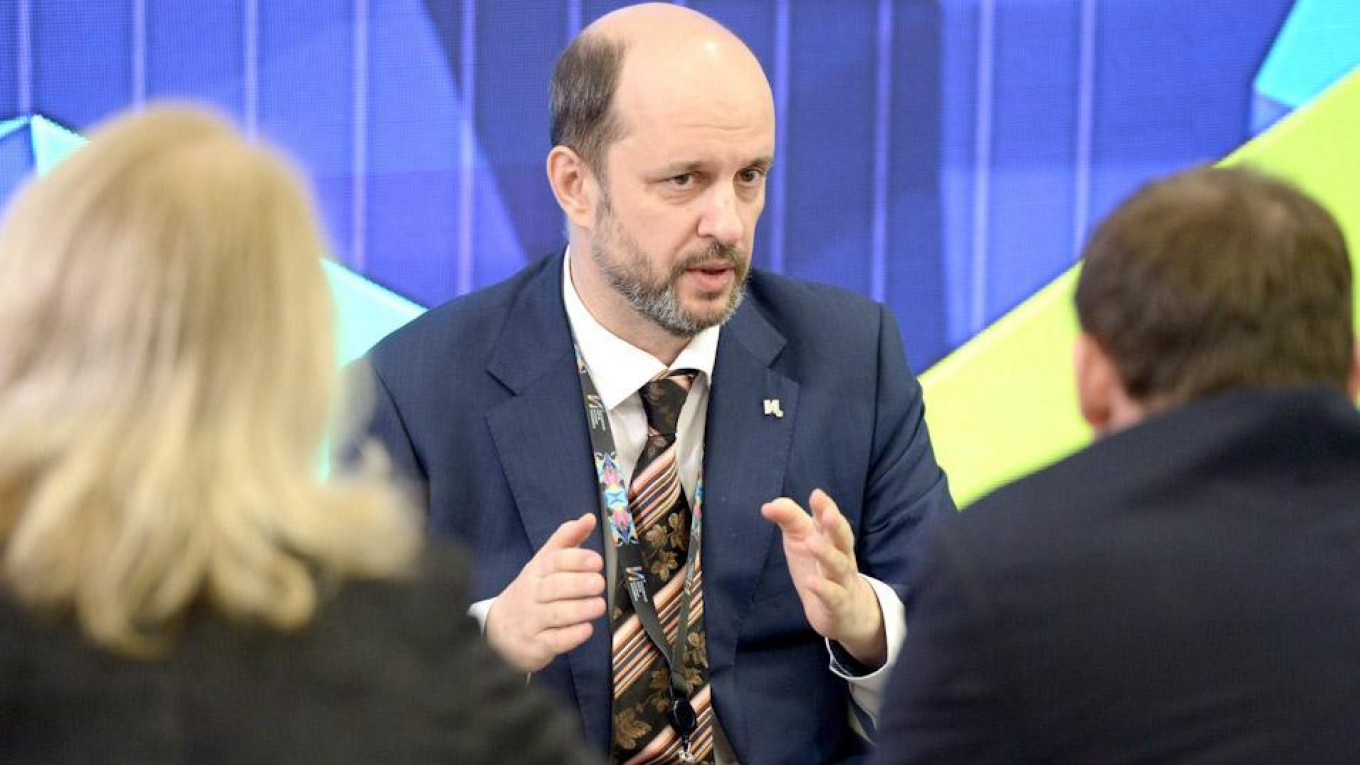President Vladimir Putin’s Internet adviser has recommended for Russia’s media regulator to apologize for wreaking havoc while trying to block the popular Telegram messaging service in the country.
A court ruled to ban Telegram last week for refusing to provide keys that decrypt private conversations to Russian security services. Telecom regulator Roskomnadzor has blocked millions of online addresses since Monday, causing hundreds of unaffiliated websites to experience accessibility issues.
“It would be reasonable for Roskomnadzor to apologize over this complicated story,” Putin’s Internet adviser German Klimenko told the state-run NTV television channel Wednesday.
“I hope Roskomnadzor will act more carefully from now on,” he added.
Russian Internet users have reported accessibility issues to online services including Telegram’s rival Viber since Telegram was forced offline in Russia.
The nationwide ban has failed to keep Russian decision-makers from using the popular app, which boasts 15 million Russians among its 200 million total users, the RBC business portal reported Thursday.
The outlet reported that at least six Russian lawmakers, Kremlin officials and cabinet members were seen online on the service after the ban.
State Duma deputy Leonid Levin was quoted as saying that he goes online to “see how the legislation is being implemented.”
Kremlin spokesman Dmitry Peskov denied accusations that Roskomnadzor discredited itself with a failed attempt to squeeze Telegram out of Russia.
“It’s obvious that you need time to enforce the law,” the state-run RIA Novosti news agency quoted Peskov as saying Thursday.
A Message from The Moscow Times:
Dear readers,
We are facing unprecedented challenges. Russia's Prosecutor General's Office has designated The Moscow Times as an "undesirable" organization, criminalizing our work and putting our staff at risk of prosecution. This follows our earlier unjust labeling as a "foreign agent."
These actions are direct attempts to silence independent journalism in Russia. The authorities claim our work "discredits the decisions of the Russian leadership." We see things differently: we strive to provide accurate, unbiased reporting on Russia.
We, the journalists of The Moscow Times, refuse to be silenced. But to continue our work, we need your help.
Your support, no matter how small, makes a world of difference. If you can, please support us monthly starting from just $2. It's quick to set up, and every contribution makes a significant impact.
By supporting The Moscow Times, you're defending open, independent journalism in the face of repression. Thank you for standing with us.
Remind me later.






